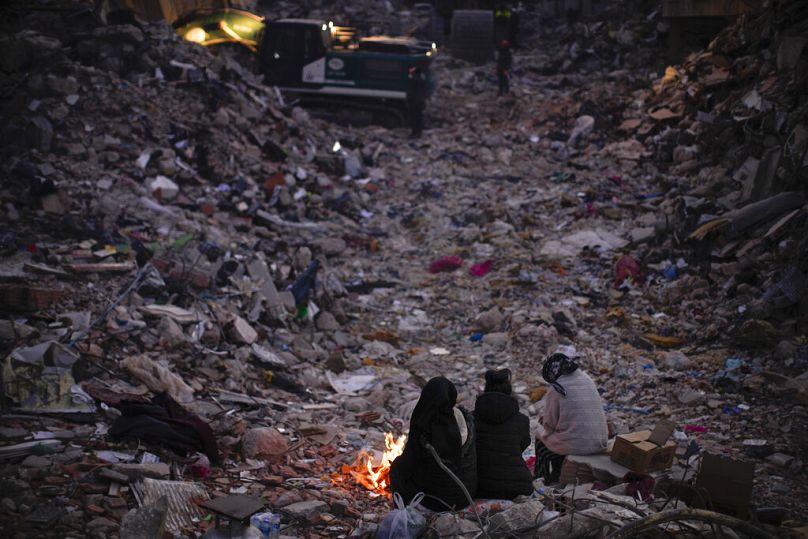
Some barely sleep. Others fear spending time indoors. And many more have developed a profound fear of the mountains that had been their source of well-being.
Survivors from the devastating Turkey-Syria quakes have been quietly suffering the lingering toll of a disaster that killed more than 50,000 people two months ago.
Survivor and security guard Cuma Zobi said his life had been turned upside down.
“I don’t sleep anymore, I go to bed at 3am and wake up at 5am, 6am, definitely not later,” he said.
“My son too. He was in Antalya and came back to see me for a week, he wakes up several times screaming at night because of the earthquake.”
The 6 February quakes damaged more than 100,000 buildings and caused more than 10,000 collapses.
“No one dares to enter a house anymore,” Zobi told Euronews, standing next to his destroyed building.
“But even if you sleep in a tent, you think about it, you remember everything, you dream about it.”

Volunteer psychiatrist Eralp Turk has tried to heal the anguish by driving around the disaster zone with a box full of pills in his car and a notepad for recording emotions.
“The three most frequent mental disorders that we currently face now are severe stress reactions, grief reactions related to losses, and finally the resurgence of old psychiatric illnesses that have been awakened by the earthquake in patients, ” he said.
Turk quickly added that these were also generalisations.
“Each disaster is different. Each region and its inhabitants have their own peculiarities,” he said.
“Culture and traditions also play a role.”
Social worker Aysen Yilmaz said the people she consulted in Turkey’s tent cities showed all the symptoms of post-traumatic stress disorder.
Three million people have been displaced by the earthquakes in Turkey, according to the International Organization for Migration, and many of those present symptoms of PTSD.
On the day of the disaster, 22-year-old Sevgi Dagli’s baby was only 15 days old.
“There was the earthquake and it is still trembling at times so you obviously feel fear,” she said.
“And it’s not really for me but for my baby, so we are worried.
“We might have to leave because the more rubble is cleared, the more dusty it gets, which is not good for our health.”
Watch Euronews’ report above.





